Pet owners have their dogs spayed or neutered for a variety of reasons.
Many do so to avoid the possibility of puppies, while others do so for the health benefits these procedures may provide.
Others may simply do so because the shelter they adopted the animal from legally requires them to. And other pet owners are probably just heeding the advice of the great Bob Barker.
Spaying and neutering is considered a requirement for responsible pet ownership (except for responsible, reputable breeders with experience breeding dogs). It may also help reduce the chances of many health concerns.
But there’s one more reason some people have their dogs neutered (and, to a lesser extent, spayed): They’re hoping that it will curtail undesirable behaviors or alter their pet’s personality.
It is true that neutering and spaying can trigger personality changes in your pet, but these changes can vary significantly from one dog to the next. We’ll dive into the issue below, to try to help you know what to expect when having your dog “fixed.”
Canine Changes After Spaying & Neutering: Key Takeaways
- Having your dog spayed or neutered may trigger significant changes in your dog’s personality. These types of changes don’t always occur, and they aren’t always predictable, but it is something to keep in mind when considering having your dog fixed.
- Both sexes may demonstrate changes, but male dogs usually experience greater changes than female dogs do. For example, many males will stop displaying unwanted behaviors, such as humping or mounting people and pets. They may also stop wandering or trying to escape as much.
- Regardless of any personality changes that occur, spaying and neutering often provide several health benefits. Females who’ve been spayed are less likely to develop uterine infections or mammary cancer, while males are less likely to develop prostate disease.
Common Behavioral Changes Associated with Spaying and Neutering
Although spaying and neutering procedures are pretty normal and considered “standard” for pet dogs, they are quite significant from your pet’s point of view. For starters, they’ll alter the hormones produced by your dog, and they can also trigger a number of behavioral changes.
However, there is a lot of variation in these changes, and different dogs will react to the procedures in different ways. While most owners will choose to have this procedure done at some point, there are many pros and cons to spaying and neutering a dog at various life stages.
Typically, males experience greater behavioral changes than females following a neutering or spaying operation, but females can experience a few changes too.
Some of the most common changes include:
Many male dogs will stop mounting and humping other dogs, their owner’s legs, and inanimate objects once they’re neutered. Others will continue to do so from time to time, especially if the dog was neutered relatively late in life.
Most males will become less likely to wander off in search of romance after being neutered. This can be especially helpful for dogs who always seem to be interested in escaping from the backyard or bolting when you open the door.
Males are generally less likely to exhibit urine marking around the house after being neutered. This doesn’t mean that dogs who are poorly house-trained will suddenly start waiting to go outside before tinkling, but it will stop the territorial “marking” behavior that many males exhibit (you may finally be able to ditch those belly bands).
Some male dogs may exhibit fewer aggressive behaviors after being neutered. However, this usually only works well if they’re neutered very early in life.
Some females may calm down a bit after being spayed, although others will act just like they did before the operation.
Note that these are all long-term changes which will manifest over the course of weeks or months following the operation. There are also short-term changes that you should expect in the hours or days following your dog’s spaying or neutering operation.
Some of the most common behavioral changes you may notice soon after bringing your dog home include:
- Lethargy
- Confusion (your dog may essentially act stoned)
- Changes in appetite
- Mild anxiety or depression
- Increased clinginess
- Frequent urination or accidents
- Excessive sleepiness
Most of these types of problems will resolve within a day or so, and many of them — such as lethargy and confusion — are likely to be the result of the anaesthetic wearing off rather than the actual spaying or neutering procedure.
Nevertheless, don’t hesitate to contact your vet if they persist or if your dog begins displaying symptoms of an infection. This may include vomiting, pain or swelling that doesn’t subside, discharge from the wound, or any other trouble effects of spaying or neutering your pet. Also watch out for behavioral changes, such as an increase in aggression.
What Is Involved in Spaying and Neutering Procedures?
Now that you understand some of the most common behavioral changes that follow spaying and neutering operations, let’s discuss exactly what happens when you have your dog spayed or neutered.
Most vets will require you to bring your dog in several days to a week before the procedure to verify that your dog is healthy enough for the operation and to obtain and analyze a blood sample.
This will help ensure that your dog’s kidneys and liver are functioning well enough to handle the anesthesia medication, among other things.
Assuming that everything checks out, you’ll be instructed to bring your dog in at a scheduled time. You’ll typically need to withhold food for some time before the procedure (likely 12 to 24 hours, but it varies from vet to vet), and you’ll want to go for a fairly long walk before the procedure to make sure your dog is completely “empty.”
Aside from that, you’ll want to keep everything as normal as possible so that your pup goes into the office relaxed and happy.
Both procedures occur under general anesthesia and take 20 to 90 minutes (spaying takes longer than neutering), although your dog will probably be at the vet for several hours to allow time for pre-op prep and post-op recovery.
A combination of several different anesthesia medications are often used during the procedure to ensure your dog remains unconscious and pain-free (or nearly so) throughout the process.
This typically involves an initial injection a short time before the operation starts, which will start calming your dog down and making him or her feel drowsy.
Once back in the operating room, your dog will likely have an IV line inserted into the front leg, through which additional anesthesia and pain-relieving drugs are administered (and perhaps saline too). A tube will then be threaded down your dog’s windpipe so that anesthetic gas and oxygen can be delivered throughout the operation.
From this point on, things are a bit different for boy pups and girl pups, so we’ll discuss the procedures separately.
Spaying
The term spaying refers to the sterilization of a female dog, although your vet may call the operation an ovariohysterectomy or ovariectomy (the former involves the removal of the ovaries and uterus, while the latter only entails the removal of the ovaries).
At the beginning of the procedure, the veterinary staff will usually shave the area where the incision will be placed (usually the lower belly) and clean it thoroughly.
Then, once the vet is ready, he or she will make an incision through the skin, muscle, and fat to open the abdomen and access the ovaries and uterus.
The vet first finds and removes the ovaries before moving on to the uterus. The uterus, like the ovaries, is then tied off and removed. The vet will then inspect the abdominal cavity, and ensure that everything looks right and that there aren’t any bleeding wounds that require sutures. Then, the vet will begin sewing up the abdominal wall.
A bandage may be placed over the wound, and then the veterinary team will begin waking your pup up.
They’ll monitor her for a while and then release her to you along with instructions for her post-op care. You’ll usually be told to keep her calm for a few days and limit her activity.
Neutering
Neutering is the term used to describe neuter surgery — the process by which male dogs are sterilized, although it is also called castration in some contexts. The beginning of a neutering procedure will unfold just as a spaying procedure does.
Your dog will be administered anesthesia and prepped for surgery. Your dog’s scrotum may be shaved and the entire area sterilized. At this point, an incision will be made in the front side of the scrotum, near the base of the penis (sorry fellas, I assure you that was harder for me to type than it was for you to read).
Both testicles will then be removed and the associated blood vessels and the spermatic cords (vas deferens) will be tied off. The vet will examine the area, ensure everything looks OK, and then sew up the scrotum. The staff will then begin waking your dog up, and they’ll monitor him for a while before releasing him back to you.
You’ll likely be instructed to keep your boy calm for a few days while he recovers (and you may need some kind of e-collar to stop him for chewing at the wound).
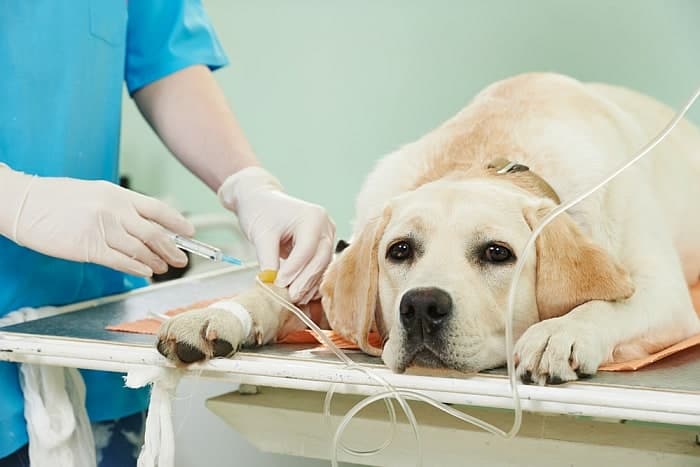
To Medicate or Not to Medicate; That Is the Question
Most dogs will experience a bit of soreness following a spay or neuter procedure. This can last for a day or two, or perhaps as long as a week or two in some cases.
Some vets like to prescribe canine-friendly pain medications to help keep dogs comfortable during the recovery process, but others do not. Those on the pro-painkiller side of the debate usually prescribe these medications to eliminate as much pain as possible and to help dogs rest comfortably while healing.
On the other hand, vets who do not like to prescribe painkillers to dogs argue that it discourages your dog from moving around more than necessary and helps keep them calm while they heal. This may sound a bit harsh, but remember that vets love animals and want the best for them – sometimes a bit of pain is an acceptable outcome if it serves a greater good.
The general trend appears to be moving toward using pain medications following surgery, but there are still many vets who feel that dogs heal more effectively if not prescribed these medications.
Just be sure to speak with your vet before the procedure and ask him or her about their thoughts regarding pain management. Some will be willing to adjust their typical procedures to suit your wishes, but others will remain steadfast and refuse to adjust their practices.
Although some vets do not administer pain medication to pets undergoing spay or neuter procedures to encourage your pet to keep still and rested, this is not in the best interest of your dog.
Use a crate if necessary to keep your dog calm, but don’t force him to endure days of pain unnecessarily.
If your vet steadfastly refuses to provide pain management for your pet, it may be time to seek out a new vet.
What Health Benefits Are Associated with Spaying and Neutering
Aside from the fact that spaying and neutering help prevent unwanted litters, most vets recommend these procedures because they provide a wide range of health benefits.
These benefits are obviously different depending on the sex of your dog, so we’ll discuss them separately below.
Neutered Males
- Most intact (non-neutered) male dogs will suffer from prostate disease if they live long enough. Neutering greatly reduces the likelihood that prostate problems will manifest.
- Testicular cancer is common among older, intact males. However, because both testicles are removed during a neutering procedure, male dogs who’ve been fixed no longer have to worry about this problem.
- Perineal tumors (which occur between the anus and scrotum) are much less common following neuter surgery than they are in intact males.
- Some hernias, particularly perineal hernias, occur less frequently in neutered dogs than their intact counterparts.
Spayed Females
- Spaying helps to drastically reduce the occurrence of mammary tumors in female dogs. This is important because up to 50% of breast tumors in dogs turn out to be cancerous.
- Spaying also helps to reduce the risks of problems relating to the uterus. Uterine infections are quite common among non-spayed females, but, because the uterus is removed during a spaying procedure, these won’t occur in spayed females.
- Although menstruation isn’t a “health problem,” it’s messy, and it can cause headaches for owners. Spayed females will no longer experience a heat cycle or menstruate.
Note that there are a few health risks involved with spaying and neutering too.
For starters, there are always risks involved with any surgical procedure or anytime a dog is placed under anesthesia. Additionally, altered dogs — who often display increased appetites and slower metabolisms — are at risk of weight gain, obesity, and all of the other health risks associated with carrying too much weight.
There are also some breed-specific problems that can occur. Golden retrievers, for example, suffer from joint problems more commonly when they’re spayed or neutered at a young age. Meanwhile, German shepherds have been shown to suffer from several types of cancer, incontinence, and joint disorders more commonly after being neutered.
Now that you know some of the things that may happen after having your dog altered, you may want to check out some of the most important dog spaying and neutering statistics.
You may be surprised by what you find!
***
Have you noticed any behavioral changes in your pooch after having him neutered? Or, if your pup is a girl, did she change after being spayed? Have you noticed unwanted behaviors disappearing or a reduction in sexual behavior?
Let us know about your experiences in the comments below.
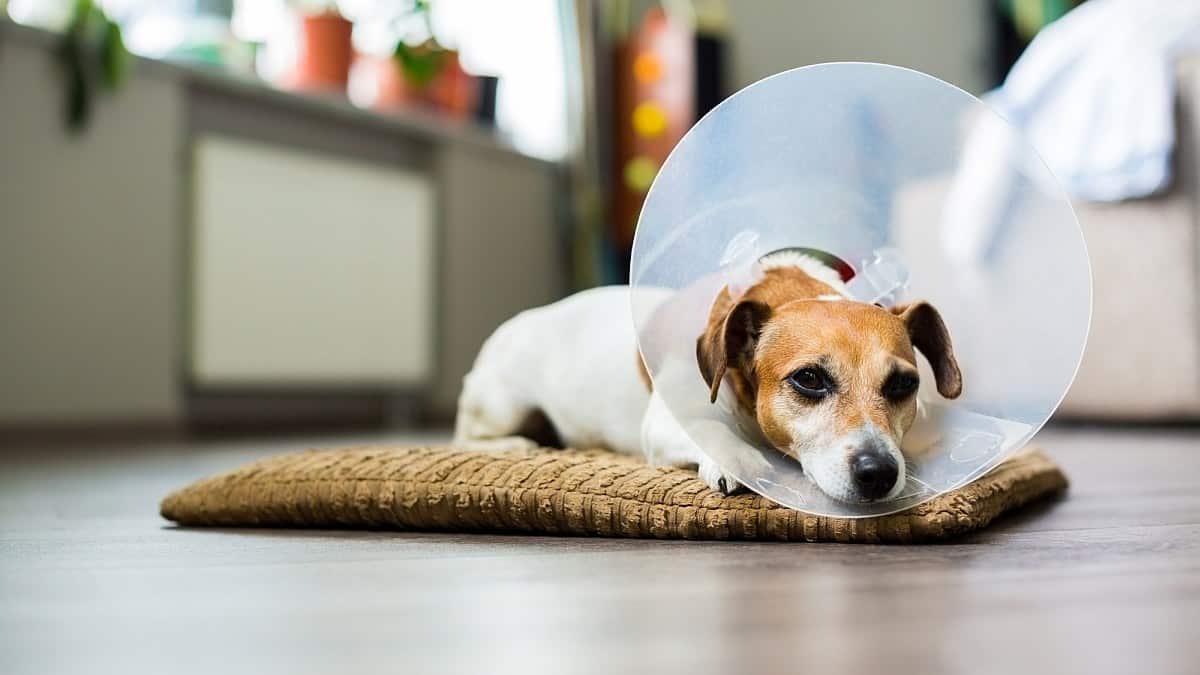




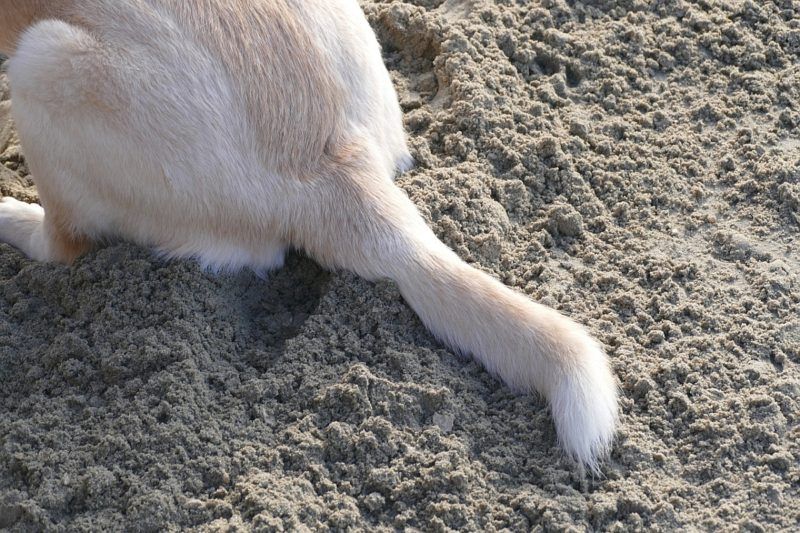
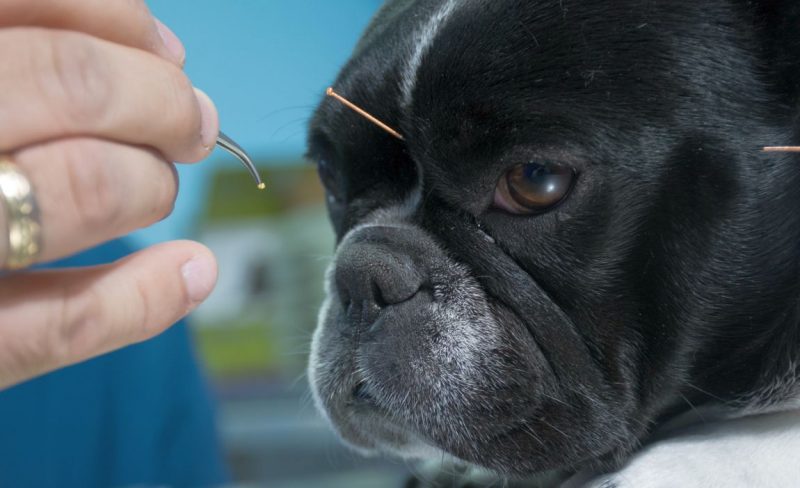
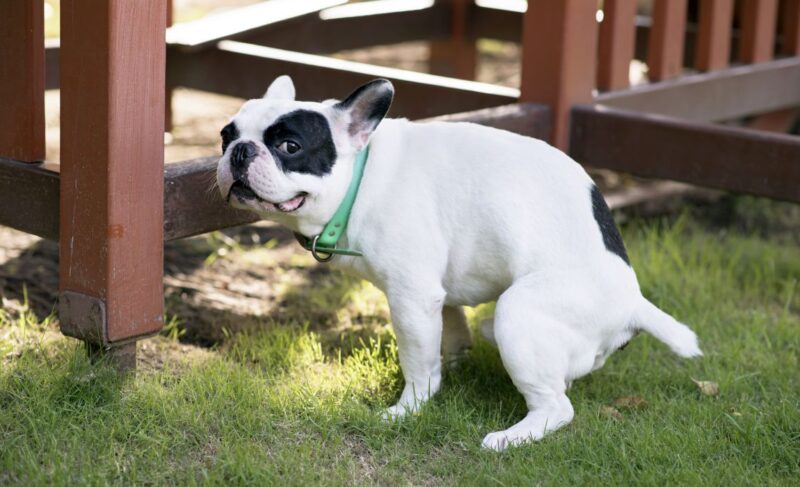

Leave a Comment